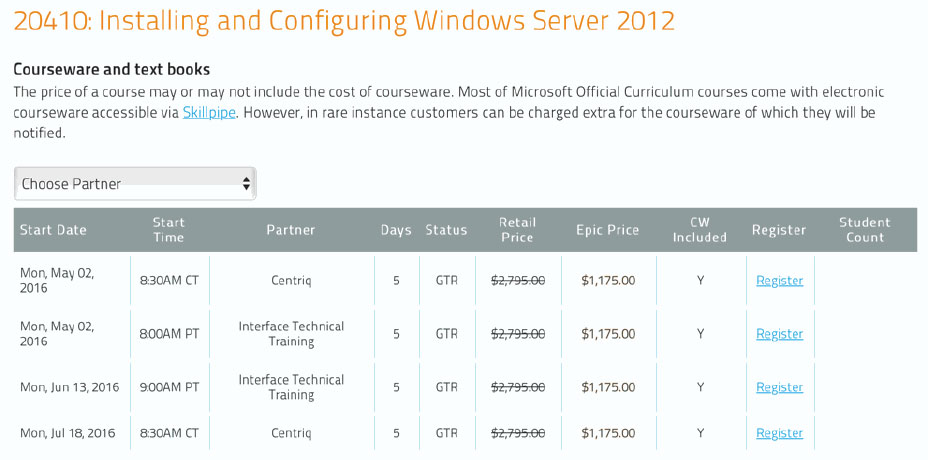MB-500T00: Microsoft Dynamics 365: Finance and Operations Apps Developer
About this Course
Developer training. Microsoft Dynamics 365 Finance and Operations Apps Developers implement and extend applications to meet the requirements of the business. Candidates provide fully realized solutions by using standardized application coding patterns, extensible features, and external integrations.
Audience Profile
Microsoft Dynamics 365 Finance and Operations Apps Developers
At Course Completion
After completing this course, students will be able to:
• Create and document a data model
• Implement entities and fields
• Create and maintain solutions
• Automate business processes
• Extend the user experience
• Develop integrations
Outline
Module 1: Overview & Architecture
Describe the Dynamics 365 ecosystem and major components of the Dynamics 365 Finance and Operations (FO) software, describe the architecture of D365FO, describe relevant D365FO design and deployment considerations.
Lab: Development Environment configuration and Project/Model Creation
Module 2: Developer Tools
Manage system implementations by using Lifecycle Services, Customize D365FO by using Visual Studio, Manage source code and artifacts by using version control, Work with other development tools to complete tasks.
Lab: Source Control using DevOps
Module 3: Solution Design
Determine the required application stack components and server architecture, Implement Application Lifecycle Management (ALM), Design a solution for D365FO.
Lab:Data Structure Development
Module 4: AOT Elements
Create forms, Create and extend tables, Create Extended data Types (EDT) and enumerations, Create classes and extend AOT elements.
Lab: Metadata Extension & Development
Module 5: Code Development & Testing
Develop X++ code, Develop object-oriented code, Extend D365 FO functionality, Describe test framework and tools, Perform Unit Testing.
Lab: Code Extension & Development
Module 6: Data Migration
Describe migration tools and methodologies, Plan Migration strategy, Prepare data for migration and migrate data.Lab: Data Export/Import using Data Entity
Lab: Recurring Data Transfer
Module 7: Frameworks Implement D365 FO functionality
Lab: SysExtension Framework
Module 8: Integration
Identify Data integration patterns and scenarios, Implement Data integration concepts and solutions, Implement Recurring integrations, Integrate D365FO with Microsoft Azure, Troubleshoot integration errors, Implement the Data Management Package API.
Lab: OData Integration Lab: Logic App Integration Lab: Calling an External Web Service
Module 9: Reporting
Describe the capabilities and limitations of reporting tools in D365FO, Design, create, and revise Dynamics Reports, Design, create, and revise Dynamics workspaces, Design, create, and revise data sources that connect to data stores external to D365FO.
Lab: Power BI reporting from F&O
Module 10: Security & Performance
Describe and implement performance tools and LCS Environment Monitoring tools, Implement role-based security policies and requirements, Apply fundamental performance optimization techniques, Optimize performance for batch processes, Optimize user interface performance, Enhance Integration performance, Optimize Report Performance.
Lab: Async & Sandbox Functionality

